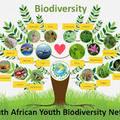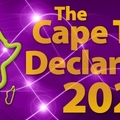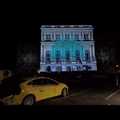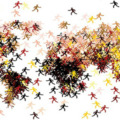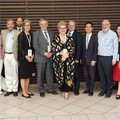Rio de Janeiróban tartotta ülését a World Science Forum Irányító Testülete
"Tudomány a globális fenntartható fejlődésért" címmel rendezi meg 2013-ban tanácskozását a World Science Forum (WSF) – erről döntött a világfórum Rio de Janeiróban ülésező Irányító Testülete. A Pálinkás József, a Magyar Tudományos Akadémia és a WSF elnöke részvételével tartott esemény résztvevői határoztak a plenáris ülések fő témáiról is.
Az Akadémia elnökének kezdeményezésére a WSF-et – megtartva magyar és budapesti kötődését – minden második alkalommal, vagyis minden negyedik évben más-más világvárosban tartják. Jövőre Rio de Janeiro ad majd otthont a tudomány Davosaként is emlegetett eseménysorozatnak, amelyet a Brazil Tudományos Akadémia szervez. A nemzetközi rotációról szóló döntést azóta a tudomány számos jeles képviselője üdvözölte. Az Irányító Testület ülésén is elhangzott vélemények szerint a lépés hozzájárult a WSF iránti érdeklődés további növekedéséhez, így a rangos rendezvényt mind több nemzetközi szervezet avatta valódi világfórummá.
 A tudományért, technológiáért és innovációért felelős brazil miniszter, Marco Antonio Raupp bevezető beszédében köszönetet mondott a World Science Forum alapítójának amiért lehetővé tette, hogy a WSF történetében először Magyarországon kívül, Brazíliában rendezzék meg
A tudományért, technológiáért és innovációért felelős brazil miniszter, Marco Antonio Raupp bevezető beszédében köszönetet mondott a World Science Forum alapítójának amiért lehetővé tette, hogy a WSF történetében először Magyarországon kívül, Brazíliában rendezzék meg  a következő világfórumot, és kifejezte a Magyar Tudományos Akadémia iránti nagyrabecsülését a 2003 óta megtartott öt sikeres rendezvény lebonyolításáért. A miniszter hangsúlyozta továbbá a két ország közötti kétoldalú kapcsolatokat erősítő magyar-brazil tudományos, technikai és technológiai együttműködés fontosságát.
a következő világfórumot, és kifejezte a Magyar Tudományos Akadémia iránti nagyrabecsülését a 2003 óta megtartott öt sikeres rendezvény lebonyolításáért. A miniszter hangsúlyozta továbbá a két ország közötti kétoldalú kapcsolatokat erősítő magyar-brazil tudományos, technikai és technológiai együttműködés fontosságát.
A tanácskozáson – amelynek napirendjén a tavaly ősszel Budapesten nagy sikerrel megrendezett világfórum következő, 2013-as brazíliai tanácskozásának előkészítése szerepelt – részt vett többek között a Nobel-díjas kémikus, Yuan Tseh Lee, a Nemzetközi Tudományos Tanács elnöke, Gretchen Kalonji, az UNESCO természettudományokért felelős főigazgató-helyettese, továbbá Jacob Palis, a Brazil Tudományos Akadémia elnöke, valamint Marco Antonio Raupp, a Brazil Tudományos, Technológiai és Innovációs Minisztérium vezetője.
Első ülésén az Irányító Testület elfogadta a 2013-as világfórum címét: Tudomány a globális fenntartható fejlődésért. Megállapodtak abban is, hogy a rendezvényen fő témaként a fenntartható fejlődés sokoldalú tudományos megközelítését vizsgálják majd a résztvevők hat plenáris ülésen.
Marco Antonio Raupp beszéde: 
Statement by Minister Marco Antonio Raupp on the occasion of the Meeting of the Steering
Committee of the World Science Forum
(Rio de Janeiro, June 12, 2012)
Ladies and Gentlemen,
Brazil's economy has grown consistently in the last few years, which has had very positive effects on the
welfare of is population. It is in this favorable environment that I have the pleasure to express the great
enthusiasm of the Brazilian Government to host the World Science Forum in 2013. It is indeed an
honor for Brazil to have been selected to host the VI Edition of the World Science Forum, the first one
to be held outside its traditional headquarters, the beautiful historical city of Budapest.
<blh:post_more text="tovább" class="more">
1. I would like to greet each member of the Steering Committee through my friend, Professor
Jacob Palis, President of the Brazilian Academy of Sciences and Chairman of the Board of the
Academy of Sciences for the Developing World (TWAS).
2. As you all know, the World Science Forum is a result of the efforts of several important actors in
the international scene. By the end of the 1990's, the Hungarian Academy of Sciences,
UNESCO, the International Council for Science (ICSU) and the American Association for the
Advancement of Science (AAAS) established the World Science Forum, as a privileged space for
debate between the scientific community and society at large. In this context, I would like to
stress the role of the Hungarian Academy of Sciences, which has hosted the five biennial editions
of the Forum that since 2003 have taken place in Budapest.
3. Hungary has a tradition of cooperation with developing countries. With Brazil in particular,
agreements have been established since the end of last century for cultural, scientific, technical
and technological cooperation. The partnership between Brazil and Hungary is expanding. In
2006, both countries celebrated the Agreement for Economic Cooperation and in 2010 a
Memorandum of Understanding on Political Consultations, paving the way to strengthened
bilateral relations.
4. At this point, I would like to highlight the decisive participation of Minister Aloizio Mercadante,
my predecessor at the Ministry of Science, Technology and Innovation, for hosting the World
Science Forum in Brazil. Minister Mercadante participated in the last edition of the Forum in Budapest, last November, and suggested the theme 'Science for Global Development for the
2013 edition, to be held in Brazil.
5. The Brazilian Government and the Ministry of Science, Technology and Innovation reaffirm
their support to the Forum. Together with the Brazilian Academy of Sciences (ABC) and the
Brazilian Society for the Advancement of Science (SBPC) we will start working for the
organization of a very successful meeting.
6. In the next few years Brazil will host several major international events. For the Rio+20
Conference, leaders and delegations from more than 100 nations are expected, in order to
discuss future scenarios for the planet. There is great mobilization by the United Nations, by
member countries and by civil society alike, in order to define an agenda for the official and
unofficial debates and events, with a view to arriving at favorable results. The issues are complex
and controversial, but I am confident that there will be substantive progress towards ensuring
development of nations with social and economic justice and in a sustainable manner.
7. Science and Technology are the basis for building the consensus which we seek at Rio+20. This
perception has led the prestigious International Council for Science (ICSU) to hold the Forum
on Science, Technology and Innovation at the Rio de Janeiro Pontificia Universidade Catolica
(PUC}, this week, with a view to contributing to the discussions at Rio+20 on a series of themes
related to the role of Science and Technology in the construction of a sustainable economy and
society.
8. Even though Brazilian Science is still relatively young, the Brazilian scientific community is
extremely active and productive. Today, Brazil holds 13th position in the ranking of scientific
production, globally. Yearly, about 40 thousand people get a master's degree and about 12
thousand people get a PhD degree. We have about 230 thousand professionals dedicated to
research and development. Innovation and scientific and technological development are at the
base of social and economic development of all nations.
9. But we need to do more. Under the Government of President Dilma Rousseff, we have
established the National Science, Technology and Innovation Strategy for 2011-2015, which
views the triad 'Science, Technology and Innovation' as the structuring axis for Brazilian
development. The achievement of the programs and projects foreseen in this public policy
instrument will require about R$ 74,6 billion for the period. These resources come from the
Ministry of Science, Technology and Innovation as well as from another six Ministries, besides other federal institutions, such as the National Bank for Social and Economic Development
(BNDES), Petrobras and Eletrobras. This is a really nationwide effort.
10. Several activities preceded the choice of Brazil as host of the World Science Forum in 2013. In
2009, in collaboration with the main Latin American Governments and institutions in the sphere
of Science, Technology and Innovation, UNESCO conducted a series of consultation meetings,
in order to prepare a 'Regional Strategy' for the Science and Technology sector for the next
decades. The first Regional Forum on Science, Technology and Innovation Policies was held in
Mexico, in March 2009. In June 2009, a meeting was held in Rio de Janeiro with the purpose of
preparing a Regional Declaration on the theme.
11. In November 2009, with the support of the Ministry of Science, Technology and Innovation of
Argentina, the second Regional Forum on Science, Technology and Innovation Policies for Latin
America and the Caribbean was held in Buenos Aires. This Forum issued the Regional
Declaration, which was presented at the IV World Science Forum in Budapest, in 2009.
12. The main thrust of the Regional Declaration is the establishment of a strategic regional program,
in order to strengthen South-South cooperation for identifying solutions to the common
problems of the countries in the region, and to acknowledge the need to incorporate the concept
of social inclusion in Science, Technology and Innovation policies. The Regional Declaration
identifies strengths and weaknesses of the national systems of Science, Technology and
Innovation in the region and proposes actions for the effective implementation of a regional
strategic plan.
13. By the end of 2011, as a result of a series of preparatory meetings and of the mobilization of the
main actors of the Brazilian System of Science, Technology and Innovation, the Executive
National Commission for the World Science Forum 2013 was created, bringing together
representatives from 12 national institutions, namely: MCTI, ABC, SBPC, MRE, MEC-CAPES,
CNPq, FINEP, CGEE, ANDIFES, CONSECTI, CONFAP and the UNESCO representation
in Brazil. The National Commission is tasked with the participation of the Brazilian Government
in the preparation, institutional coordination, logistics and thematic program for the World
Science Forum 2013, including the definition and planning of activities complementary and
parallel to the main event, to be held in Brazil along 2012 and 2013.
14. Since its inception, the WSF 2013 Executive National Commission has held over 10 meetings
bent on the preparation of the "Document of Principles" which is to consubstantiate the Brazilian position, as well as to define the great priority themes and activities to take place in
Brazil before the main event.
15. Under the 2013 WSF central theme - "Science for Global Development", the following priority
areas have been identified by the National Executive Commission:
ENERGY;
WATER RESOURCES;
NATURAL DISASTERS AND CLIMATE CHANGE;
INNOVATION IN FOOD PRODUCTION AND FOOD SECURITY;
BIODIVERSITY AND TROPICAL FORESTS;
URBAN DEVELOPMENT-SUSTAINABLE CITIES;
Plus the following transverse themes:
EDUCATION IN SCIENCE;
KNOWLEDGE ACCESS AND DISSEMINATION;
ETHICS IN SCIENCE
CHALLENGES IN ST&I EVALUATION
16. A series of seven meetings preparatory to the WSF 2013 are also to take place throughout the
2012-2013 biennium. Each meeting will last 2-3 days and, overall, an attendance of 200-300
people is anticipated in lectures and debates between scientists and representatives from
scientific societies, scientific institution managers, students and university professors. These
preparatory meetings are being organized around specific themes, scheduled for the different
Brazilian regions, as follows:
SÃO PAULO, 30/31 AUGUST AND 01 SEPTEMBER 2012 (CONFIRMED);
BELO HORIZONTE, OCTOBER 2012;
MANAUS, NOVEMBER 2012;
SALVADOR, DECEMBER 2012;
RECIFE, MARCH 2013;
PORTO ALEGRE, MAY 2013;
BRASILIA, JUNE 2013 (CLOSING)17. In closing I wish to extend to you all a warm welcome. Let us work together 50 that we can have
in Brazil a remarkable sixth edition of the world science forum, undoubtedly the major
international scientific event.
Thank you very much.

